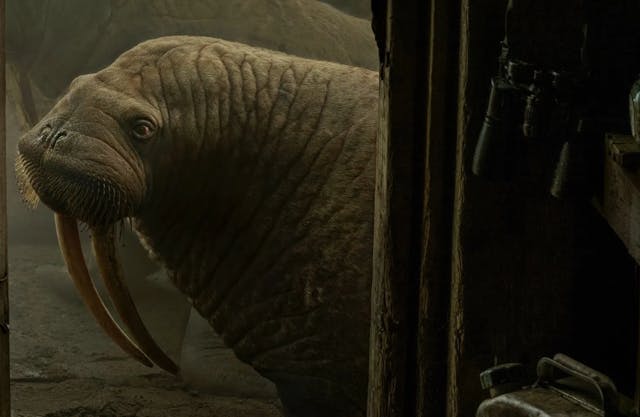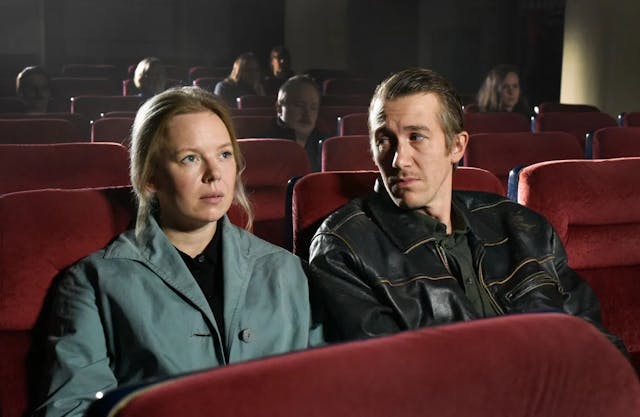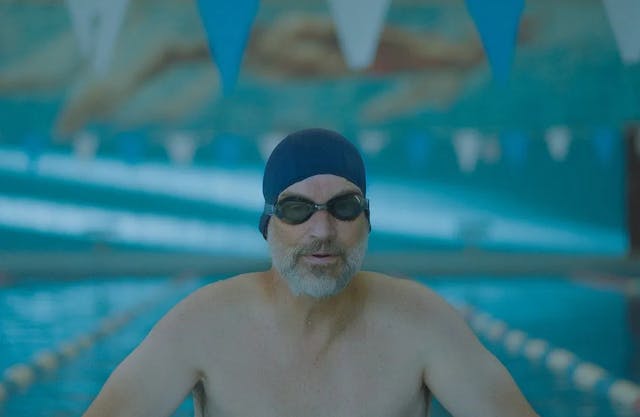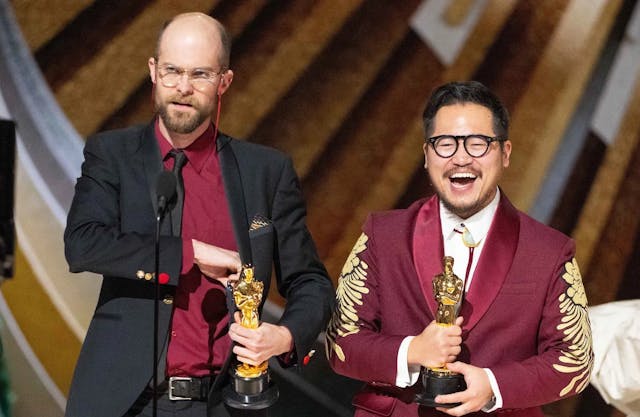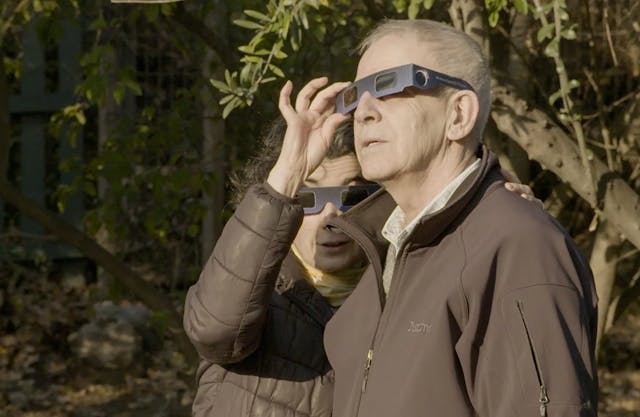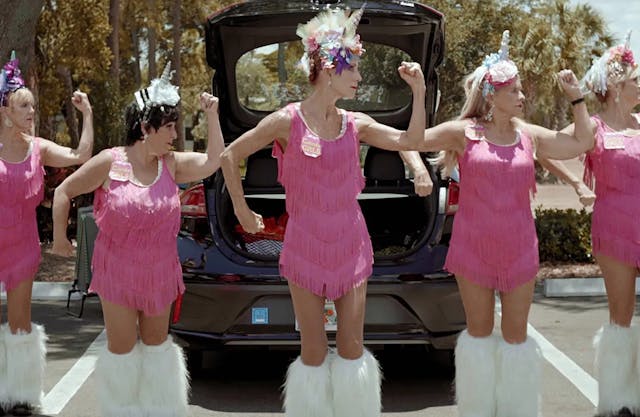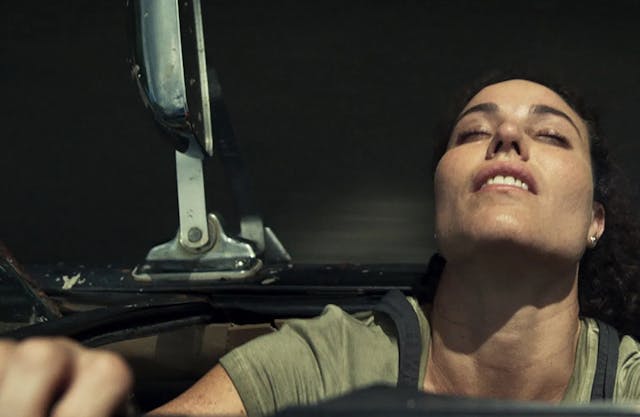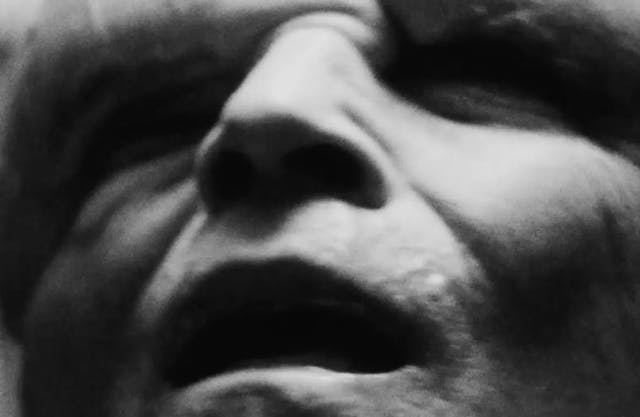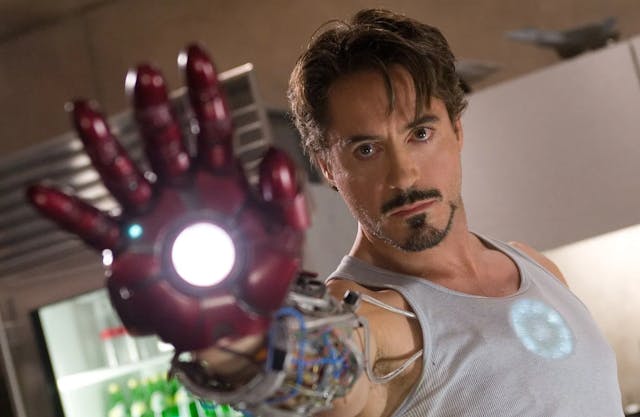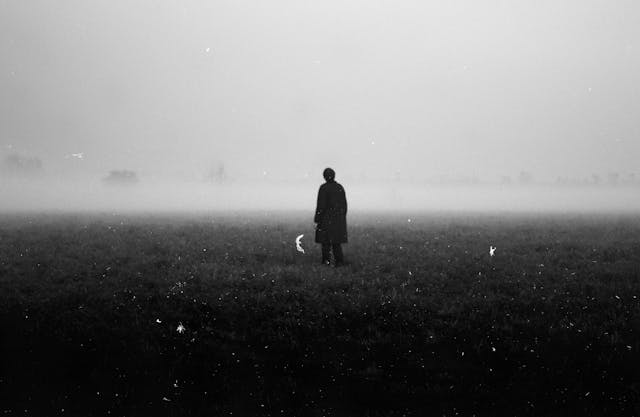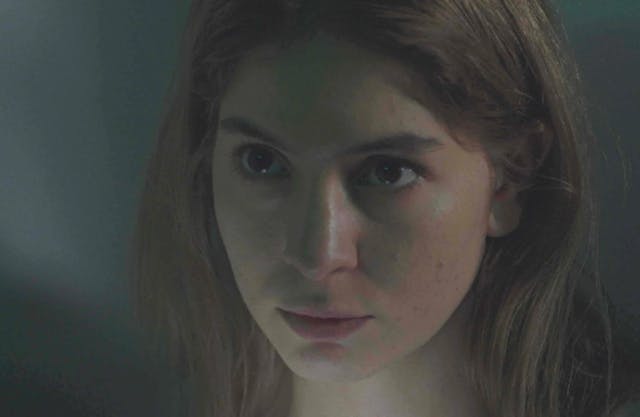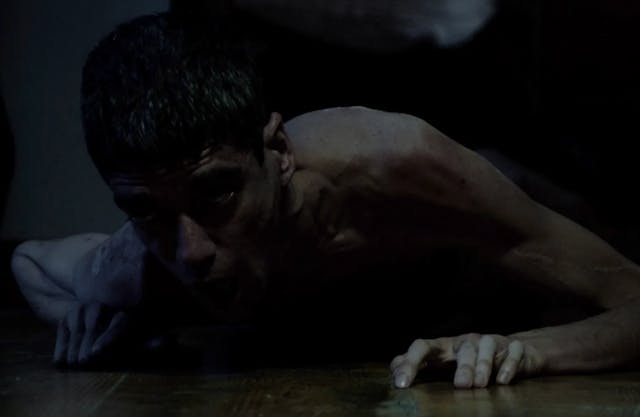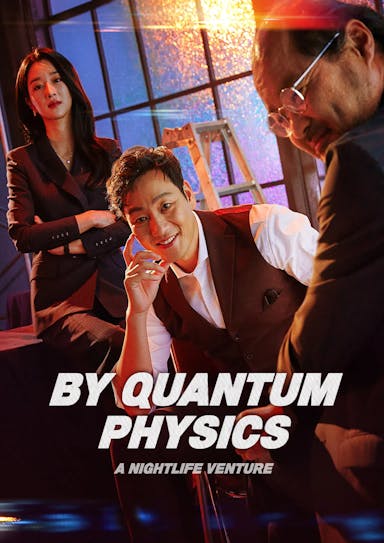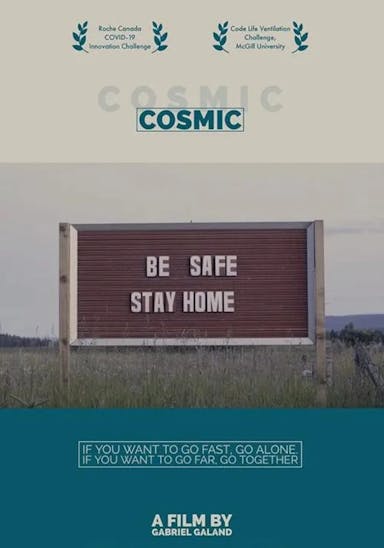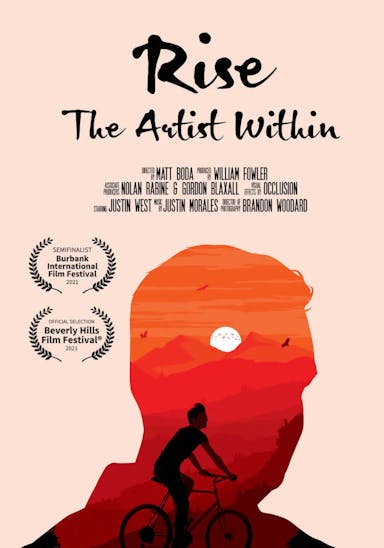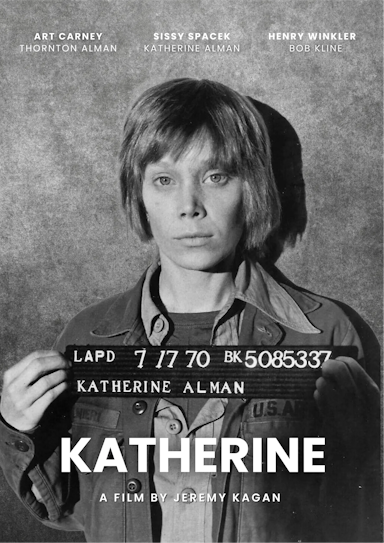Sundance 2023: Indie Movies' Magic in "Sorcery" & "Pod Generation"
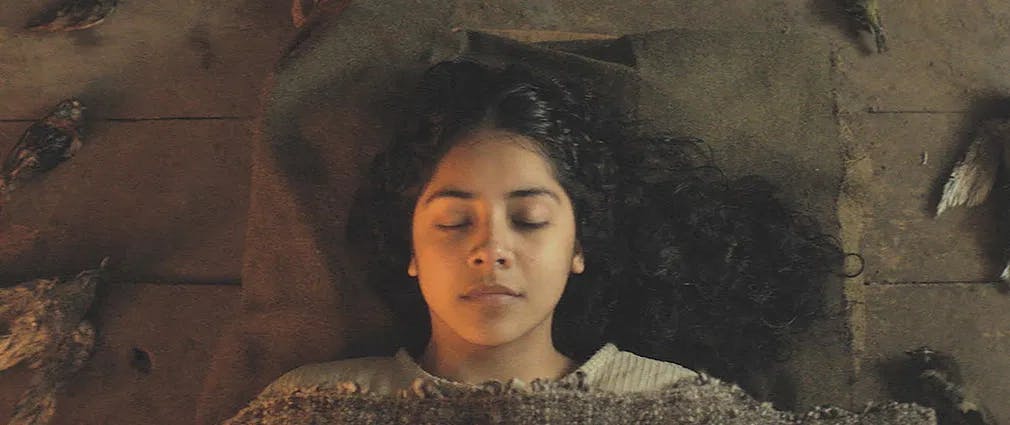
Ancestral magic: Catarina Oliveira in a trance in Sorcery / Photo courtesy o Sundance Institute
Our next-to-last Sundance dispatch brings some black magic from colonial-times Latin America and a hard-hitting documentary about an indigenous rights activist dealing with the effects of colonialism in contemporary times. Coincidence? Yes, totally. Also, a star-studded misfire and a sci-fi with a beloved Game of Thrones veteran. As film festivals go, nothing beats Sundance at showcasing how varied indie movies can be.
Sorcery
Move over, Mexico. Chile is now the hotbed of film creativity in Latin America. This year, Sebastian Silva’s Rotting in the Sun and Maite Alberti’s The Eternal Memory captured headlines in Sundance. Allow me to vouch for Christopher Murray’s dreamy - or is it nightmarish? - phantasmagoria. 1880, Spanish colonizers and German settlers took over the Chiloé island and the indigenous Huilliche territory. They impose their culture and way of life. Rosa (Valentina Véliz Caileo) is a teenager working as a maid for a gruff farmer, Stefan (Sebastian Hülk). Despite the rough treatment of her employer, she can’t help but soak up their customs to the extent of becoming a Christian. Alas, Rosa will reclaim her identity after Stefan brutally kills her father. Under the tutelage of Elder Mateo (Daniel Antivilo), she will become a powerful sorceress. Her quest for revenge puts the whole community on a collision course with the Spanish justice court headed by Judge Acevedo (Daniel Muñoz).
María Secco’s beautiful cinematography counterbalances the matter-of-fact way the most fantastical elements are presented. Nature is otherworldly, and for the natives, magic is their science. The culture clash comes to a head in an unexpected plot twist that turns this magical realism exercise into a riveting courtroom drama. By narrative magic, the movie mutates in front of your eyes. Overall, a solid, hadsome film production.
Twice Colonized
You rarely have the chance to see the person under the calling when you meet social justice crusaders. Lawyer and activist Aaju Peter, of Greenlandic Inuit origin, grants Danish director Lin Aluna full access to her daily life. The filmmaker follows her on a multinational trek, pushing her agenda of supporting indigenous rights and trying to sort out her personal life.

Look at me: Aaju Peter covers her face and bares her soul in Twice Colonized / Photo courtesy of Sundance Institute
From Canada to Denmark to Greenland, Peter shows the frail human behind the charismatic, fearless leader. Her life is full of gut-wrenching drama, from her son’s suicide to an abusive relationship with a white man. She manages to connect these traumas with her condition as a twice-colonized person. As a teenager, she entered a study abroad program that brought Inuit kids to school in Denmark. She shed her indigenous identity without fitting into the Nordic European mold. Eventually, she migrates to Canada and reclaims her roots in a process filtered by White North American culture. As she travels from one place to another, you feel she no longer belongs anywhere.
The more vulnerable you see her, the clearer you see our human contradictions. She is a woman who can stand against a cadre of powerful politicians but can also come undone speaking by phone to a cruel romantic partner. It gets so personal it can be uncomfortable.
Bad Behavior
Star power led me astray towards this dismal, dark comedy about the pitfalls of celebrity. Jennifer Connelly is Lucy, a wealthy retired actress trying to reconnect emotionally with her daughter, Dylan (Alice Englert). Distance throws a monkey wrench in the process. The girl works as a stunt double in a low-budget fantasy movie shooting in New Zealand. The mother is in the U.S. Northwest at a “silent retreat” under the guidance of a smarmy guru (Ben Wishshaw). There, she finds an unexpected nemesis in Beverly (Dasha Nekrassova), an earnest top model whose mere existence reminds her how her glory days are behind.
Englert is a serviceable actress, yet the discourse around her feature film directing debut concerns her lineage. She is the daughter of Jane Campion. The Academy Award winner for The Power of the Dog (2021) even cameos in a brief scene. Nepotism is the subject du jour on film Twitter, and Englert has a built-in target in her back, but it would not matter that much if the movie were any good - see Brandon Cronenberg and Infinity Pool -.

Stars behaving badly: Connelly faces her worse qualities in Bad Behavior / Photo courtesy of Sundance Institute
Despite all the outrageousness it tries to muster, Bad Behavior feels raw and unfocused. It is too enamored of itself to take advantage of Connelly’s dark energy and her feud with the coltish ingenue. Even though Lucy turned her back on show business by her own will, she feels displaced by Beverly. Social media celebrities like her killed the movie star. To add insult to injury, Beverly is young and pretty, too.
Dylan’s commitment to the less glamorous side of filmmaking is an existential rebuke to her mother, but her rebellion pales in light of the catty Lucy-Beverly feud. A subplot about Dylan’s ill-fated on-set romance is disposable. It does no favors to Englert to parcel out a big chunk of the movie to herself. Overall, it was a missed opportunity to put her knowledge of life at the top of the creative class and create a truly insightful work about the pitfalls of privilege. This is an exercise in navel-gazing for the Art House crowd.
The Pod Generation
Sophie Bartes's dystopic romantic comedy won the Alfred P. Sloan prize at Sundance. It is easy to see why. The Sloan Foundation promotes films preoccupied with science-related issues, and The Pod Generation ponders a very personal one. In near-future New York, Rachel (Emilia Clark) and Alvy (Chiwetel Ejiofor) grapple with the possibility of getting pregnant. She is a powerful executive at a social media agency, putting her on the cutting edge of the business world. He is a botanist promoting access to nature in an ever more artificial world. Guess who brings home the bread? She does, so instead of taking maternity leave, they consider a service allowing them to gestate babies inside an artificial womb. It is so convenient! They can carry it around like a backpack or leave it in a laboratory under the care of skilled technicians.
The couple spar over ethical and emotional implications and reluctantly agree to follow the procedure. As the pregnancy advances, their conflicting viewpoints change. Clark and Ejiofor have an easy chemistry between them. You can believe they are in a relationship. The Pod Generation smartly builds a recognizable future and articulates how convenience, and not necessarily progress, is the motor of innovation. You can share Alvy’s exasperation when his boss announces budget cuts that would force them to switch the plants in their greenhouse with holograms.
As the delivery date looms on the horizon, Rachel and Alvy find common ground in a way that balances science and humanity without falling into reactionary conservatism.
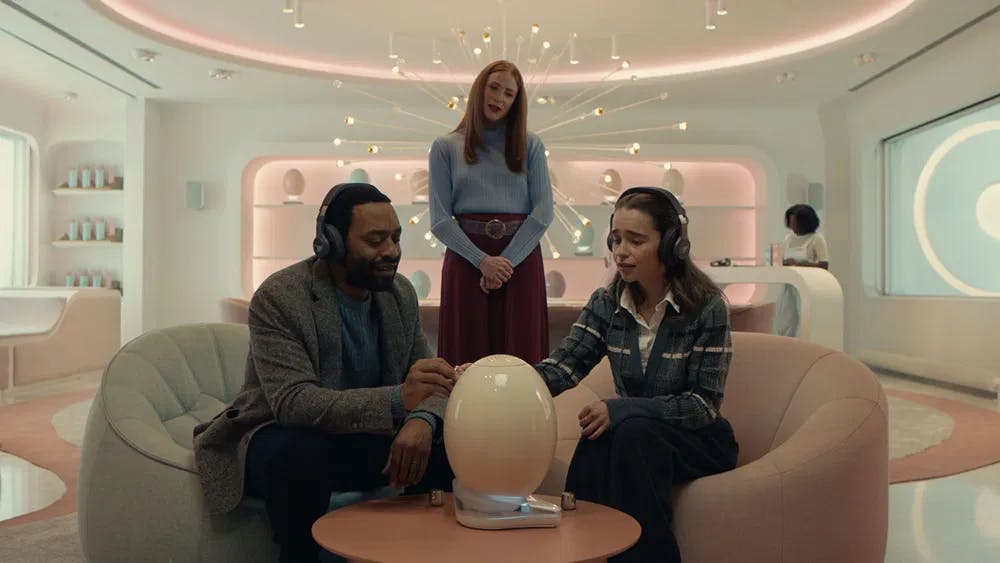
Plastic life: Chiwetel Ejiofor, Rosalie Craig and Emilia Clarke bring up The Pod Generation / Photo courtesy of Sundance Institute
Want to get an email when we publish new content?
Subscribe today